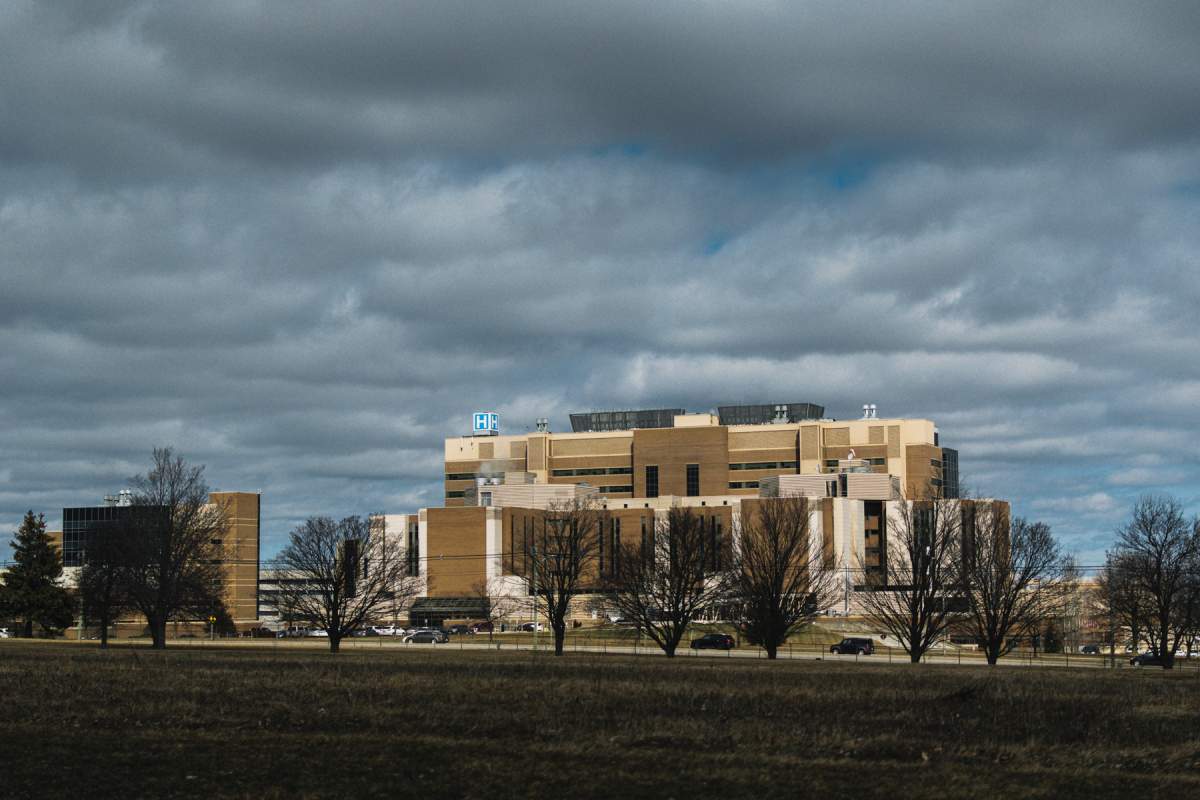London Health Sciences Centre is calling on locals to mask up in public places, saying it supports the province’s recent masking recommendation as it grapples with an influx of patients and occupancy rates north of 100 per cent at its hospitals.

Earlier this week, the province’s chief medical officer of health issued a strong recommendation for people to wear masks indoors to curb the spread of respiratory viruses, including COVID-19, influenza, and RSV (respiratory syncytial virus), which have slammed Ontario hospitals.
Dr. Kieran Moore added Monday that a mask mandate remains on the table should the province’s health-care system continue to see significant pressures. The Ontario Ministry of Health has instructed emergency departments to prepare for an “extreme surge” in demand.
More people have been arriving at the hospital with viruses due to the early arrival of the cold and flu season, with pressures felt across the organization, including in emergency departments, intensive care units, and inpatient units, LHSC said Tuesday.
These pressures are evident in LHSC’s occupancy rates, which stand north of 100 per cent at University and Victoria hospitals. At Children’s Hospital, occupancy sits at 115 per cent, the highest it’s ever been, they say.
Last week, Children’s Hospital’s emergency department clocked in 200 visits on Nov. 7 and 180 visits on Nov. 8. The unit was built for about 100 daily visits.

Get weekly health news
“Traditionally, our busiest respiratory months are February, January and March. It’s only early November now, so we all anticipate that it will get worse before it gets better,” said Dr. Rod Lim, medical director of the pediatric emergency department, on Nov. 9.
In London-Middlesex, 41 lab-confirmed influenza cases and two deaths have been reported since late August, with 27 cases and one death recorded between Nov. 6 and 12, the Middlesex-London Health Unit says. The actual number of influenza cases is likely much higher.
At least 247 lab-confirmed cases of COVID-19 were reported last week along with three deaths, the health unit said, a downward trend compared to the week before. It should be noted, however, that most residents are ineligible for PCR testing, meaning the tally is also likely an undercount.
LHSC officials say they anticipate “significant ongoing pressures in the coming weeks and support the government’s recommendation for individuals to mask in public places, as we know masking is one of the most effective tools for preventing disease transmission.”
The capacity pressures have resulted in lengthy wait times. At Children’s Hospital, wait times have been six to eight hours on average for non-urgent and non-emergent wait times, while in the adult emergency departments, wait times have reached as high as 20 hours in recent weeks.
The province said Monday that plans were in place to expand Ontario pediatric capacity to 150 per cent, with a reduction in planned surgeries at most pediatric centres to create capacity.
LHSC has not publicly announced any surgical reductions or cancellations. Global News has been unable to secure an interview with LHSC officials this week for comment.
Elsewhere, Ottawa’s Children’s Hospital of Eastern Ontario has opened a second pediatric ICU, while Sick Kids hospital in Toronto has cancelled non-urgent surgeries and is directing kids 14 and older to adult ICUs if they are in need of critical care.
LHSC, like other hospitals across the province, has also been contending with staffing shortages as health-care professionals leave the profession, retire early, or are absent due to illness.
Others have moved elsewhere, including to the U.S., due in part to the province’s controversial public sector wage cap law, Bill 124.
Local hospital officials have advised the public to utilize alternate health-care options if their matter is not an emergency, including the urgent care clinic, walk-in clinics and primary care physicians.
— With files from The Canadian Press and Andrew Graham, Isaac Callan and Colin D’Mello of Global News.












Comments
Want to discuss? Please read our Commenting Policy first.